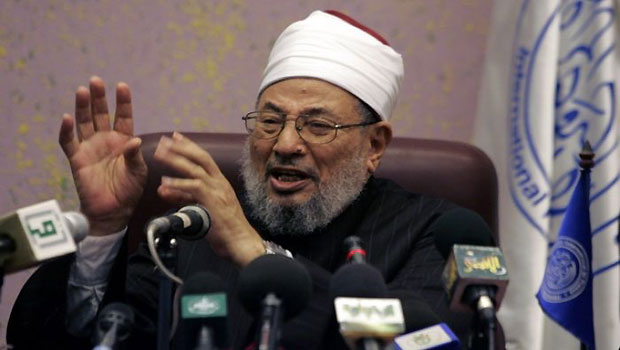The religious discourse in the Arab and Muslim media is blazing. What makes things even worse is the increase in the number of inflammatory platforms spouting religious fanaticism: The Shi’ites are insulting the Sunnis, the Sunnis are cursing the Shi’ites, while those seeking fame and fortune are immersing themselves in this quagmire in a quest for applause and celebrity.
Thus, “controlling” religious discourse has now become a security requirement and a social necessity rather than a redundant call for reform.
Religion, or to be more accurate, religious sentiment, is a profound feeling that directs much of people’s conduct in life, including their political views. Therefore, those seeking fame find religious sentiment easy to exploit.
Earlier this week, renowned Mauritanian preacher and jurist Dr. Abdullah bin Bayyah resigned from his post as vice chairman of the International Union for Muslim Scholars (IUMS). The post of chairman is, of course, held by none other than Egyptian-born cleric Sheikh Yusuf Al-Qaradawi. Now, Sheikh Qaradawi has displayed a sudden partisan rush of empathy towards the Muslim Brotherhood, thereby placing his colleagues in IUMS—who hate to be branded as Brotherhood supporters—in a particularly embarrassing situation. This is particularly the case as IUMS is dominated by people who adopt the Brotherhood’s discourse and ideology, even if they are not necessarily official members of the group and are viewed as being “formalistically” independent.
The original objective of IUMS was to “create” an entity for issuing fatwas, serving as a juristic wing that could influence all Muslims whereby it would achieve full stature as a religious institution independent of the Muslim Brotherhood. In fact, this was the big challenge facing the Muslim Brotherhood and those adopting its culture.
IUMS incorporated well-known names in the world of jurisprudence [Islamic Fiqh] such as Qaradawi himself and Sheikh Abdullah Bin Bayyah. Yet, those affiliated to the organization also include “activists” and zealous preachers who hold influential posts despite lacking the requisite jurisprudential experience and qualifications. The majority of such figures did not resign in the same manner as Bin Bayyah, and remain affiliated to Qaradawi’s Union.
Were it not for the uprisings against the Muslim Brotherhood in Egypt and Tunisia, the organization may have swallowed the fatwa issuing institutions and all traditional religious entities, as was manifested by the plot hatched by the Brotherhood against Egypt’s Al-Azhar.
In my opinion, IUMS, founded in 2004 with a council of trustees incorporating Rachid Ghannouchi and Fahmi Howaidi, was nothing more than a first attempt at creating a Brotherhood-friendly fatwa wing. Yet, the uprising against the Brotherhood has called for old calculations to be reconsidered. For his part, Sheikh Qaradawi opted to deny and escalate the situation, whilst others have submitted to the new reality and taken a step backward, attempting to distance themselves from the Muslim Brotherhood.
The question that must be asked here is: Since religion influences and effects society in untold ways, which in turn has a direct impact on issues such as security, politics, foreign relations, and civil peace, is it fair for religious reform to be monopolized by sheikhs and preachers? This is not to mention issues such as who is and is not entitled to issue fatwas or Friday sermons.
Isn’t it true that the issue of whether to go to war or not should not be held solely in the hands of the military? Similarly, reforming our society’s understanding and dealings with religion must also be something that concerns everyone, although, of course, the sheikhs must be at the forefront of this.
